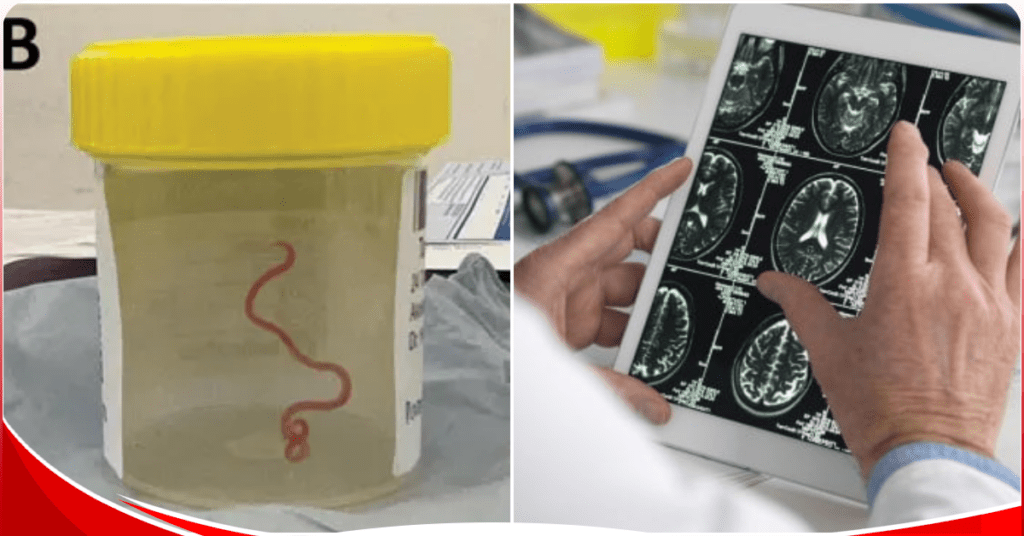In a shocking breakthrough, Australian doctors have achieved an unprecedented medical feat by extracting a live and wriggling parasitic roundworm from a woman’s brain.
This stomach-churning discovery sent waves through the medical community.

Memory loss
A 64-year-old Australian woman began experiencing memory lapses, prompting concerned doctors to conduct an MRI scan.
The scan revealed an unusual lesion at the front of her brain that left medical experts puzzled.

This roundworm, commonly found in kangaroos and carpet pythons, had somehow infiltrated the woman’s brain.
A phenomenon previously unheard of in the medical world.
“This is the first time we’ve ever documented a human case of Ophidascaris,”
Infectious disease specialist Sanjaya Senanayake, shared. still amazed by the rarity of the situation.
New scientific discovery
The unwelcome guest likely entered the woman’s body as she foraged for edible shrubs near her home, inadvertently coming into contact with parasitic larvae that had been expelled in snake faeces.
The roundworm, appearing as a string-like structure on brain scans, was later identified through DNA testing, confirming the astonishing diagnosis.
Senanayake expressed deep respect for the woman, acknowledging her patience and courage throughout the ordeal:
“Being the first patient in the world for something is never easy or desirable.”
He also noted that while Ophidascaris roundworms usually affect animals in different parts of the world, it’s probable that more cases involving humans will surface in the years to come.
This revelation underscores the interconnectedness of nature and the unforeseen ways in which parasites can cross species boundaries.
The groundbreaking findings have been detailed in the journal Emerging Infectious Diseases, marking a significant milestone in medical knowledge.











